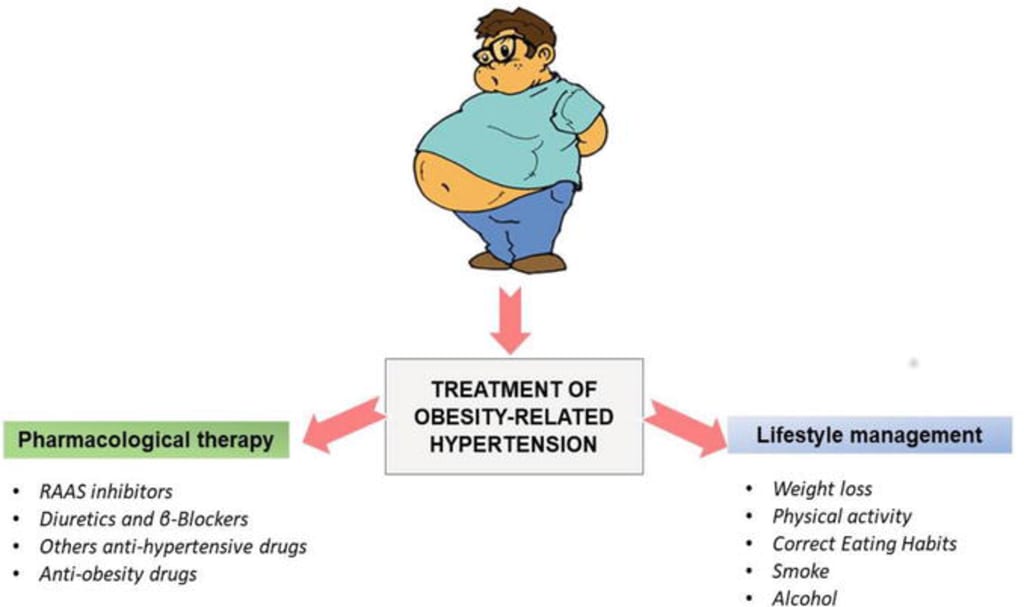What hormone imbalance affects weight loss?
How do you lose weight on hormone blockers?

## Understanding the Role of Hormone Imbalance in Weight Loss
Weight loss is often portrayed as a straightforward equation of "calories in versus calories out." However, anyone who has struggled with stubborn weight gain or an inability to lose weight knows that it’s not always that simple. Beyond diet and exercise, hormones play a critical role in regulating metabolism, appetite, and body fat distribution. Hormonal imbalances can significantly impact your ability to lose weight. Let's explore some of the key hormones involved and how their imbalance can thwart weight loss efforts.
### The Hormones That Influence Weight Loss
1. **Insulin**
Insulin is a hormone produced by the pancreas that regulates blood sugar levels. It helps cells absorb glucose from the bloodstream to use as energy or to store as fat. When insulin levels are consistently high, often due to a diet high in refined carbohydrates and sugars, the body can become resistant to insulin. This condition, known as insulin resistance, leads to higher blood sugar levels and more fat storage, particularly around the abdomen.
- **Impact on Weight Loss**: Insulin resistance makes it harder to burn fat and easier to store it, especially around the belly. Lowering carbohydrate intake and focusing on foods with a low glycemic index can help manage insulin levels.
2. **Cortisol**
Cortisol is often called the “stress hormone” because it is released in response to stress. It plays a vital role in various body functions, including metabolism. However, chronic stress leads to consistently elevated cortisol levels, which can promote fat storage, especially around the midsection.
- **Impact on Weight Loss**: Elevated cortisol can increase cravings for sugary and fatty foods and lead to overeating. Managing stress through mindfulness, adequate sleep, and relaxation techniques can help balance cortisol levels.
3. **Leptin**
Leptin is a hormone produced by fat cells that signals the brain to stop eating when you’re full. In a well-functioning system, leptin helps regulate energy balance and prevents overeating. However, in cases of leptin resistance, which is common in obese individuals, the brain does not receive the signal to stop eating, leading to continued hunger and overeating.
- **Impact on Weight Loss**: Leptin resistance can make it difficult to recognize fullness and control appetite. Eating a diet rich in whole foods and exercising regularly can help improve leptin sensitivity.
4. **Ghrelin**
Known as the “hunger hormone,” ghrelin is produced in the stomach and signals the brain to stimulate appetite. Ghrelin levels typically rise before meals and fall after eating. However, certain factors, such as sleep deprivation, can disrupt this cycle and keep ghrelin levels high, leading to increased hunger and overeating.
- **Impact on Weight Loss**: High ghrelin levels can lead to constant feelings of hunger, making it hard to stick to a calorie-controlled diet. Prioritizing adequate sleep and managing stress can help regulate ghrelin levels.
5. **Thyroid Hormones**
The thyroid gland produces hormones that regulate metabolism, including thyroxine (T4) and triiodothyronine (T3). Hypothyroidism, a condition where the thyroid is underactive, can slow down metabolism, leading to weight gain and difficulty losing weight.
- **Impact on Weight Loss**: A sluggish thyroid can make weight loss seem impossible due to reduced metabolic rate. Diagnosing and treating hypothyroidism, often through medication, is essential for restoring normal metabolism.
6. **Estrogen and Progesterone**
These sex hormones play a role in body fat distribution and metabolism. Imbalances, such as estrogen dominance, can lead to weight gain, particularly in the hips, thighs, and abdomen. Menopause, characterized by a decline in estrogen, often leads to weight gain as well.
- **Impact on Weight Loss**: Hormonal changes related to estrogen and progesterone can make weight loss challenging, especially in women. Maintaining a balanced diet, regular exercise, and possibly hormone replacement therapy (under medical supervision) can help manage these changes.
### Managing Hormonal Imbalances for Weight Loss
Addressing hormonal imbalances requires a holistic approach that includes lifestyle changes, dietary adjustments, and sometimes medical intervention. Here are some strategies to consider:
- **Eat a Balanced Diet**: Focus on whole, nutrient-dense foods, rich in fiber, lean proteins, and healthy fats. Avoid processed foods high in sugar and refined carbohydrates.
- **Regular Physical Activity**: Exercise helps regulate insulin and leptin levels, reduce stress, and support a healthy metabolism.
- **Manage Stress**: Incorporate stress-reducing practices such as yoga, meditation, or deep-breathing exercises.
- **Get Adequate Sleep**: Aim for 7-9 hours of quality sleep per night to keep cortisol and ghrelin in check.
- **Consult with a Healthcare Provider**: If you suspect a hormonal imbalance, work with a healthcare provider to get appropriate tests and treatments.
### Conclusion
Hormonal imbalances can significantly impact your weight loss journey by affecting metabolism, appetite, and fat storage. Understanding the role of hormones like insulin, cortisol, leptin, ghrelin, thyroid hormones, estrogen, and progesterone can help you take targeted actions to address these imbalances. By making informed lifestyle changes and seeking appropriate medical support, you can improve your hormonal health and support your weight loss goals.
## How to Lose Weight on Hormone Blockers: A Comprehensive Guide
Weight management is a challenge under the best circumstances, but for those taking hormone blockers, it can be even more complex. Hormone blockers, also known as hormone inhibitors or antagonists, are medications that interfere with the body’s normal hormone production or action. They are commonly used in the treatment of hormone-sensitive cancers, such as breast and prostate cancer, and in gender-affirming therapies for transgender individuals. These medications can significantly alter the hormonal landscape, impacting metabolism, appetite, and body composition.
If you are on hormone blockers and struggling with weight management, understanding how these medications affect your body is crucial. Here’s a comprehensive guide to help you navigate weight loss while on hormone blockers.
### Understanding Hormone Blockers
Hormone blockers work by either reducing the production of certain hormones or blocking their action at the cellular level. Here’s how they are commonly used:
- **In Cancer Treatment**: Hormone blockers are used to treat hormone-sensitive cancers by reducing the levels of hormones that fuel cancer growth. For example, in breast cancer, estrogen blockers can slow the growth of tumors that rely on estrogen.
- **In Gender-Affirming Therapy**: Transgender individuals may use hormone blockers to suppress the production of endogenous hormones such as testosterone or estrogen as part of their transition.
### How Hormone Blockers Affect Weight
1. **Metabolic Rate**: Hormones play a crucial role in regulating metabolism. When hormone levels are altered by blockers, your metabolic rate can decrease, making it harder to burn calories.
2. **Fat Distribution**: Hormone blockers can change how and where your body stores fat. For example, reduced testosterone can lead to increased fat accumulation in men, particularly in the abdominal area.
3. **Muscle Mass**: Hormones like testosterone and estrogen help maintain muscle mass. Blocking these hormones can lead to muscle loss, which further reduces your basal metabolic rate (the number of calories your body needs to maintain basic functions at rest).
4. **Appetite and Cravings**: Hormonal changes can affect appetite and cravings, often leading to increased hunger or a preference for high-calorie foods.
### Strategies for Weight Loss on Hormone Blockers
While hormone blockers can present additional challenges to weight management, it’s entirely possible to lose weight with the right strategies. Here are some practical steps:
1. **Optimize Your Diet**
- **Focus on Nutrient-Dense Foods**: Prioritize a diet rich in vegetables, fruits, lean proteins, and whole grains. These foods are high in nutrients and low in calories, helping you stay full without overeating.
- **Control Portion Sizes**: Pay attention to portion sizes to avoid consuming excess calories. Using smaller plates, measuring servings, and being mindful while eating can help.
- **Limit Processed Foods**: Reduce your intake of processed foods, sugary snacks, and refined carbohydrates. These can contribute to weight gain and spikes in blood sugar levels.
2. **Incorporate Regular Exercise**
- **Strength Training**: Incorporate resistance exercises to build or maintain muscle mass. Muscle burns more calories than fat, even at rest, so maintaining muscle is crucial for a healthy metabolism.
- **Cardiovascular Exercise**: Engage in regular aerobic activities like walking, jogging, cycling, or swimming to burn calories and improve cardiovascular health.
- **Consistency is Key**: Aim for at least 150 minutes of moderate-intensity exercise per week, as recommended by health guidelines.
3. **Manage Stress**
- **Stress and Weight**: Chronic stress can elevate cortisol levels, leading to increased appetite and fat storage, particularly in the abdominal area.
- **Stress Reduction Techniques**: Practice stress management techniques such as yoga, meditation, deep breathing exercises, or other relaxation methods to help keep cortisol levels in check.
4. **Prioritize Sleep**
- **Sleep and Hormones**: Lack of sleep can disrupt the balance of hormones that regulate hunger, such as ghrelin and leptin, leading to increased appetite and cravings.
- **Healthy Sleep Habits**: Aim for 7-9 hours of quality sleep per night. Create a restful sleep environment and establish a regular sleep routine.
5. **Monitor Progress and Adjust**
- **Track Your Progress**: Keep a journal or use an app to track your food intake, exercise, and weight changes. This can help you identify patterns and make adjustments as needed.
- **Be Patient and Persistent**: Weight loss can be slower and more challenging when on hormone blockers. Set realistic goals and be patient with your progress.
6. **Consult Healthcare Professionals**
- **Medical Support**: Work with your healthcare team to monitor your health and adjust your treatment plan as needed. They can provide personalized advice and support based on your specific needs.
- **Dietitian Guidance**: Consider consulting a registered dietitian who can help tailor a nutrition plan that meets your needs while considering the effects of hormone blockers.Hormonal Harmony HB5 Reviews
### Conclusion
Losing weight on hormone blockers requires a multifaceted approach that considers the unique challenges posed by these medications. By focusing on a balanced diet, regular exercise, stress management, and adequate sleep, you can manage your weight more effectively. Remember to consult with healthcare professionals who can provide tailored guidance and support along your journey. Patience and persistence are key – while progress may be gradual, every step towards a healthier lifestyle counts.
About the Creator
peter
Content about cars, motorbikes, technology, news
Enjoyed the story? Support the Creator.
Subscribe for free to receive all their stories in your feed. You could also pledge your support or give them a one-off tip, letting them know you appreciate their work.






Comments
There are no comments for this story
Be the first to respond and start the conversation.